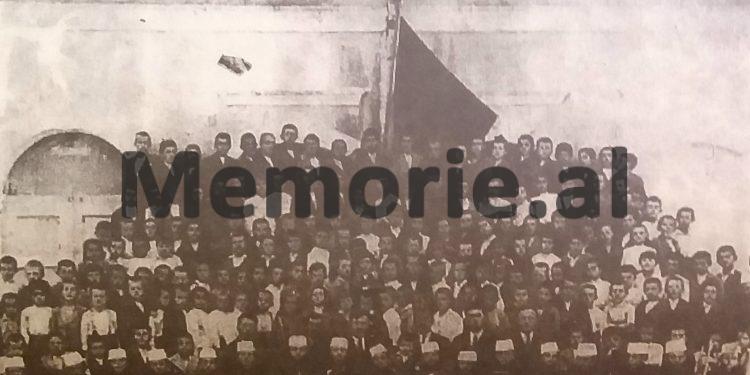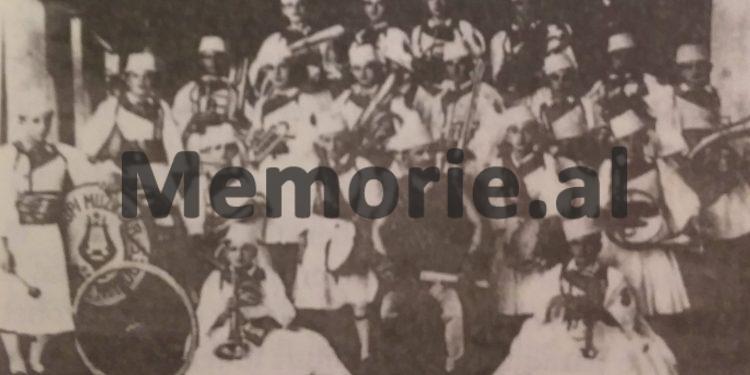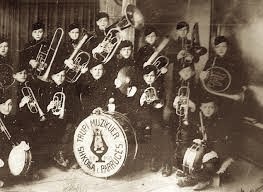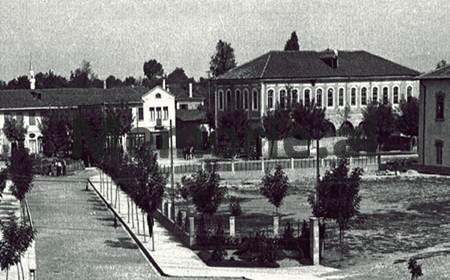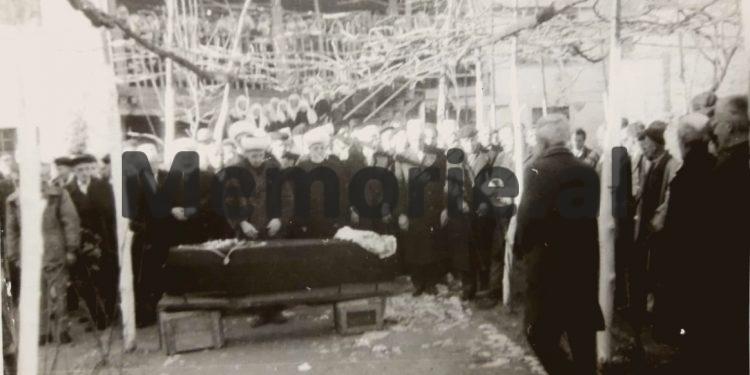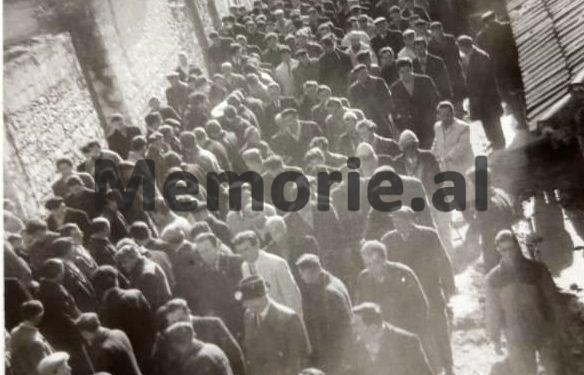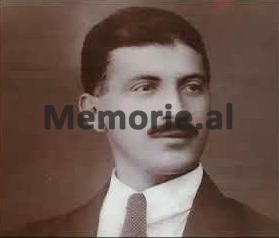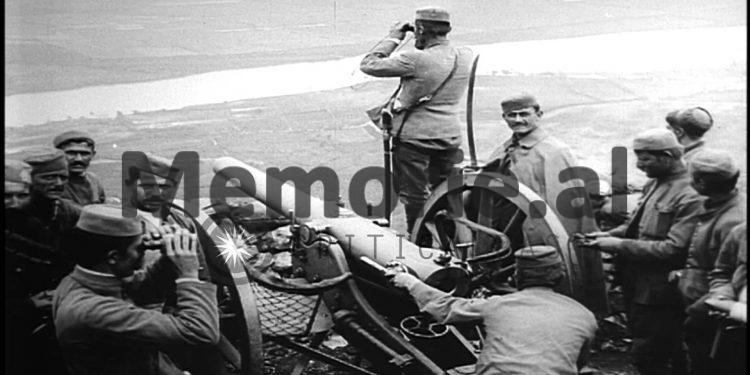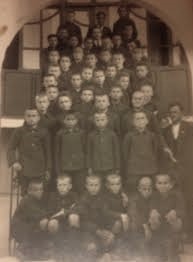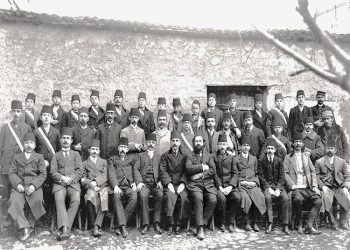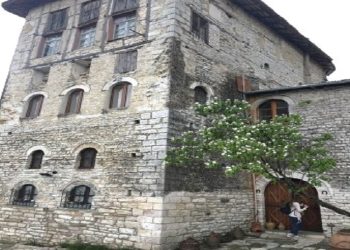Astrit Jusuf Jegeni
Memorie.al/ To write the history of Albanian personalities who have been first-hand characters in the history of modern Albania, is not easy, I would even say that it is quite difficult. The powerful presence of the communist mentality and psychology, which with its uncivilized inferiority, and the wickedness of the ruling inferiority, destroyed, left in oblivion and denigrated the historical past of the Albanian bourgeois class, ignored the values of the intellectualism of this class, which with its values and non-values, has the authorship of making this state that we have today., has the authorship of the development of this state over the years, has its stamp on the historical development of the Albanian nation. It is painful and sad for the history and social development of the Albanian race that deliberate denigration of the role and real weight that the Albanian bourgeois class has played in history. When I undertake to write about the figures of the Albanian bourgeois class and their role in the political developments of Albania, I start with only one goal, to describe only the historical and moral reality of these figures in the social developments of Albania. In this logical context we are writing for our readers this study about Mr. Sheuqet Muka.
The documentary materials of the Archive of the Ministry of Interior, File with archival number 1162 / a were used. We do not claim to give everything in this article for the above-mentioned figure, but we have the pleasure to make public the documentation we have for this social political figure, so that this character of Albanian history takes the deserved place on the altar of Albanians, who defeated for the good of his country. In this article we will write only about the period of time that Mr. Sheuqet Muka stood before the mentality of communist justice, which with its typical brutality, disregarded any intellectual and national values and tried not unsuccessfully to destroy these values in the name of a new society. In fact, those who claimed to be communists did not have a clear vision of what they were looking for and what path to take to achieve their goals. Equipped by nature with a powerful instinct, not to accept the reality of their life, which was very difficult and not to be envied, they clung tightly to the communist slogans and with a fierce jealousy suppressed on foot every man they imagined they had an adversary. Intellectually uneducated, endowed with a poor moral and social education, they became very dangerous for the Albanian society, which did not have the strength to control and process for good this direction of bad social development that Albania experienced.
His family upbringing and education were the impetus for him to take an active part in all the political events that the Albanian people went through. His activity in Albanian politics made him considered by the communists who had taken power, as their opponent and they did not hesitate to arrest him on 21.10.1946. To give a true picture of the political situation of that time and the psychological atmosphere that prevailed in Albanian society, we are giving in full all the accusations that the Military Prosecutor, CAPTAIN Namik Qemali, made for Sheuqet Muka:
- He organized the organization “Albanian Covenant”.
- He was one of Ahmet Zogu’s most loyal militants.
- During the occupation he was a clerk in the fascist apparatus.
- He raised the need for the people to unite to protect the borders from the Serbs.
- He was a friend and collaborator of Abaz Kupi and Xhemal Naipi, he participated in the meeting.
- He went to different provinces to mobilize the people against the National Liberation.
- He often went to Tirana, to the Regency and to the government to Father Anton Arapi and Mehdi Frashëri, as well as to Rexhep Mitrovica and Xhafer Deva, to whom he helped in performing operations on the people.
- He organized contacts with the traitorous leaders of Prizren, with whom he exchanged delegations to combine the fight against the people.
- After the liberation he escaped and tried to overthrow the popular power. The accusations formulated by the “honorable” prosecutor of the case do not constitute a criminal prosecution, simply, there is only hatred in it for the representatives of the bourgeois class, who should have been punished at all costs. A normal person, when reading these accusations, finds it absurd that this man has been summoned by the communist justice and cannot understand why the prosecutor asked the Trial Chamber to sentence Mr. Sheuqet Muka.
The Military Court of Shkodra on 23.6.1947, with decision no.195 sentenced Sheuqet Muka to life imprisonment.
The antihumanism of the Albanian communists knows no bounds. To argue this constant perversion, they had for their opponents, we are writing the document we have, which speaks of an opinion that the prison administration wrote about Mr. Shefqet Muka, on the occasion of a request from the latter to be released from prison on parole. We emphasize that our character had spent ten years of his life in the hellish prisons of the new socialist society. We are giving the text as follows.
Opinion on the convict Sheuqet Muka
Sheuqet Muka, son of Ahmeti and Fatima, born in 1887, born and living in the city of Shkodra, in the neighborhood Parrucë, married, education – gymnasium, main profession – N / work, comes from a rich citizenry with citizenship of Albanian nationality.
He was arrested on 21.10.1946 and sentenced by the Military Court of Shkodra to life imprisonment with decision no. 195, dated 21.6.1947 on the charge of collaborating with the fascist occupier and traitors by obstructing the National Liberation Movement. He was a member of the treacherous organization “Besa Shqiptare”.
The sentence of the aforementioned under the new criminal code has been reduced from life to 25 years. During his sentence, he did not behave well, did not follow the rules of the prison properly, did not show remorse, nor did the sentence affect him. For these reasons, considering his bad past, the Commission, convened to consider the petitions of the convicts, is not of the opinion that the above-mentioned should be released from prison before serving his full sentence, as in case of release he may to flee to an enemy state.
The attentive reader of these lines will rightly ask why the communists were so angry with Mr. Sheuqet Muka, that they did not tolerate in any direction towards him? I think that part of this question I have given the answer as above, I think there was another reason for this anger shown by the communist authorities. It was the moral personality of Mr. Sheuqet Muka, these qualities which there is no way not to bring jealousy and inferiority to the other party. To give at least this moral and political personality of Mr. Sheuqet Muka, in which we have a complete picture of our character, we are writing an investigative report, built in the form of written questions and answers. Questions and answers are interesting and have within them a great drama, the drama of good in the fight against evil, seen this in the universalism of the concept, is the drama of the individual, where human life depends on questions and answers, where the truth and untruths fight by equal means, where ignorance, mediocrity and vulgar arrogance fight with culture and wisdom, with the logic of things, where nationalism fights m einternationalism, where humanism fights with antihumanism.
Process – verbal
Question: Did you have any clerks in the time of Turkey?
Answer: In 1910 I finished the military school in Shkodra, I did not continue another school, because I have a weak right leg (osteoporosis). So, at the end of this year I was appointed a teacher in the city of Shkodra.
Question: Did you like the Turkish occupation?
Answer: At this time the occupier in our country was the Turk. There were elements in our country who worked to get rid of this yoke, and I am one of them.
Question: Have you helped any foreign occupation in Albania?
Answer: In 1912 the Turkish forces here in Shkodra were surrounded by Montenegrin forces, the Turkish forces were forced to surrender and at this time the Montenegrin forces entered, but after six weeks the Montenegrin forces left, because the five big states came to Albania.: England, France, Germany, Italy and Austria-Hungary. They stayed until a commission consisting of 12 people was created in Shkodra, which were: Hafiz Alush Jahja, Isuf Golemi, Myrto Llazani, Alush Lohja, Muharrem Kazasi, Sylço Bushati and from the Catholic side Preng Pasha, Shuk Serreqi and four others. others I do not remember by name. At this time the Montenegrin forces re-entered and remained until the Austrian forces entered in 1918. This situation continued until Shkodra joins the Albanian government headed by Sulejman Delvina. I have worked together with others to make Albania independent. For me, as a young man of that time, I liked freedom and especially I worked for the issue of freedom for Albania to become autonomous and we tried together with Ymer Ruzhdina and other friends for the Albanian people to take power, where the beys of agallars and freedom was gained with effort. The first government was formed by Ismail Qemali, then Esat Pashai, then the Albanian people had good luck and Prince Vidi came, because all the states at that time had a foreign king and not a local one. I liked this regime, after this regime came the rebellion and Shkodra became International. The rebels were with Haxhi Qamil, but there were also crowds of people, after which Esat Pasha came again. In 1924 two parties were formed. Opposition and People, I was not in any party, but I was an official of the Albanian government. I liked the 1924 government.
Question: Were you anti-Italian or sympathetic?
Answer: Along with the French and Austrian forces, the Italian forces entered and arrested me and deported me as anti-Italian, after at this time I showed political activity with these people, with Halil Berisha (died), Hys Draçini, Ymer Ruzhdina, Taip Hylmina and others. At this time, we were propagandizing against the occupation forces to get rid of their choice, for these reasons the Italians deported me to Italy, to the island of Sicily, where I stayed for a year or so. I was released after an agreement made by the Albanian government with the Italian government.
Question: What work did you do in the Zog regime, did you like this regime or were you against it?
Answer: During the Zog regime I worked as a teacher and served in Shkodra as a teacher, later I was appointed director of the primary school. In 1933 I transferred to Tirana as Director of the “Hoxha Tahsin” school. After three months of this work, I was called by the Red Cross directorate to take over the Directorate of Vorfnore Shelter in Tirana. In 1928, when Ahmet Zogu became King of the Albanians, I and other officials were called by the Government to take the oath of allegiance to King Zog, to be loyal to his work. In the Monarchy there is democracy, the Zog Regime had a Statute, where Democracy was ensured, there was freedom of the press, there was a Parliament and a Senate, so it had all the elements of democracy. There were Albanians in Zog’s Parliament, Zog’s regime, like any regime created in a new state, has its drawbacks, an ideal state cannot be demanded immediately. It takes time to become an ideal state, and I like the evolution of things. I am a proponent of evolution.
The fate of the peoples in some cases has been realized by evolution and in some cases by revolution, but the revolution has a lot of damage, an example is the great French Revolution. Zog’s regime has not oppressed the people, perhaps I have not seen anything. In the Zog regime, agrarian reforms were implemented, which also benefited Kosovar emigrants. The laws of the Zog regime have been made in the interest of the people. In force were those who were and the laws of that time served that time. The law is one for all. I was a clerk in the state apparatus and I liked the Zog regime. Today it is a Republic and it is a perfected regime, because the mass of the people is in power, even yesterday those who wanted the people were in power.
Question: Did you like the Italian occupation, what did you do against it, were you interned, why did you not escape and fight the Italian occupation, how did you live then?
Answer: I did not like fascism. I was arrested by the fascists on June 5, 1939, in which case I was fired. I was the first to be interned in Elbasan, where I stayed for 4 months, then I was taken to prison in Tirana and finally I was released and I came to Shkodra. I was interned as an anti-fascist and not as a Zogist, maybe the Italians knew me as their enemy, I was interned and in prison for a whole year. Until Italy capitulated I stayed here in Shkodra, where I was monitored. I have helped the National Liberation Front before, as much as I could. I am disabled and could not go to the mountains. I lived on the land income I had, and received a pension that was the merit of my job.
Question: Did you call the Germans occupiers?
Answer: I considered Germany a heavier occupier than the Italians. With the arrival of German forces and the capitulation of Italy, I got a job and was appointed by the Nozullimes commission in Tirana as a delegate for the Shkodra flour factory. I have been in this position for eight months.
Question: Did you deal with politics?
Answer: At the beginning of 1944, the “Albanian Faith” was formed in Shkodra. The initiators of this organization were: Ndoc Çoba, Tef Gera, Kol Kiri, Hysen Lohja, Hys Draçini, Xhemal Naipi and I Sheuqet Muka. We held the first meeting to organize this organization in the house of Ndoc Çoba. In the first meeting were the following persons: Ndoc Çoba, Sheuqet Muka and Hysen Lohja. The first conversations were as follows: On the need for unity, the defense of the homeland, the avoidance of fratricide, the vows of blood. We decided in the meeting to make propaganda and agitation among the people to increase the ranks of this organization and on the other hand the members of the organization to be good patriots. Our main point was the unification of the people and being ready for the liberation of the homeland, the departure from fratricide and the reconciliation of bloodshed.
Question: Tell us about the “League of Shkodra”.
Answer: From the end of March 1944, in order to face the quarrels and the situation created and not to leave a reason for the fratricide, an agreement was made between these organizations: “Besa Shqiptare”, “Grupi Nacional Indipendent” and the “National Front”. The agreement was on the following points: to stay away from fratricide and secondly, to unite in the event of an invasion by the Yugoslavs. At the end of the war the organizations will be free to show their activity according to the program they had. Ndoc Çoba and I went from “Besa Shqiptare” as representatives, Hafis Ali Tari and Marku i Gjon Marka Gjoni from “Grupi Nacional Indipendentes”. From “Ballit Kombëtar” Lec Kurti and Jup Kazazi. This meeting took place in the house of Gjon Marka Gjoni, here the ‘League of Shkodra’ was created and established. About 5-6 months that has been this connection can have been done about 20-30 meetings. I did not participate in all the meetings, because I was busy with work, my place was taken by Hys Draçini, where he was announced by Ndoc Çoba to go to the meeting. To increase its ranks, the ‘Shkodra League’ has sent its members through the Shkodra Prefecture sub-prefecture, to announce the connections of the above organizations in a single organization according to a defined program. The people who had participated in these meetings, welcomed this news and promised to take their representatives to Shkodra.
The Shkodra meeting took place at the end of May 1944 in the “Rozafat” cinema. The meeting was attended by the representatives of Balli Kombëtar who were represented by Lec Kurti and Jup Kazazi, from the National Independent Group, Shuk Gurakuqi and Hafiz Ali Tari, from Besa Shqiptare, Ndoc Çoba and Sheuqet Muka, as listeners were invited first. The meeting of the three organizations aimed at uniting the entire Shkodra Region to be ready for the future and to avoid fratricide. The meeting was opened by the representative of the Albanian Besa, Ndoc Çoba, where the organizational form of the Shkodra League was determined. The ‘Shkodra League’ had a local character. The ‘Shkodra League’ was destroyed there in mid-September, the causes of the destruction being the bad situation that was created.
Question: Did you have an agreement with the League of Prizren?
Answer: At the time of the formation of the ‘League of Shkodra’ a delegation of the League of Prizren came to our city which consisted of four people, among them I know only Kol Margjini. The reason for their arrival was to call the leaders and leaders of the country to go to Prizren. They asked us for a delegation of 70-80 people to assist in a meeting to be held in Prizren aimed at defending Kosovo. Since we were newly created, we sent these three people as delegates: Hys Draçini, Shuk Gurakuqi and Jup Kazazi. When our delegates returned from Prizren, they presented to the presidency a report on the organization of the League of Prizren, on the forces at their disposal and their purpose. The tendency of this covenant in Prizren has been the liberation of Kosovo from Yugoslavia and together with Albania. Apart from this agreement, I do not know if another agreement has been made.
Question: Were you at the Zall-Herr meeting when the Legality Congress took place?
Answer: In 1943 I was in ZallHerr, a village near Tirana, after the Legality Congress was held there, I was invited as a listener. Zogist elements were invited to this meeting from all regions of Albania, the number of delegates was about 150 people. From the city of Shkodra were me, Xhemal Naipi, Hys Draçini, Tef Gera, Kol Kiri, Lin Shan Deda and Ndoc Çoba. The organization “Besa Shqiptare” was invited to this congress as an organization in itself. The Cannes base presided over the meeting. At the beginning of the opening of the conference a plaque of Zog’s anthem was placed, at the end of the congress a plaque was placed a plaque with the Flag anthem. Ndoc Çoba delivered a speech on the occasion of the opening of the Congress, he made a very brief description of the war of April 7, 1939, he also spoke about how the members of Legality united.
At this meeting it was decided to unite and prepare the forces to fight the occupier, the attitude towards fratricide. These were the main attitudes of the congress. At the end of this meeting, the conference authorized the Cannes Base to elect the members of the national council themselves, as the situation wanted them to be secret. Lord of power, I do not call my activity treason, because I did not commit treason to repent and be punished. “Besa Shqiptare” was not a traitor, nor “Lidhja e Shkodrës”. /Memorie.al




